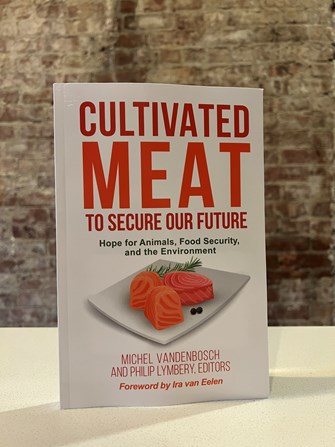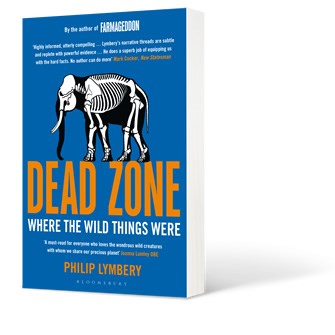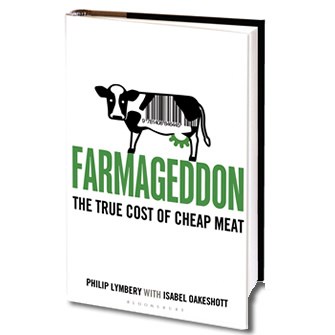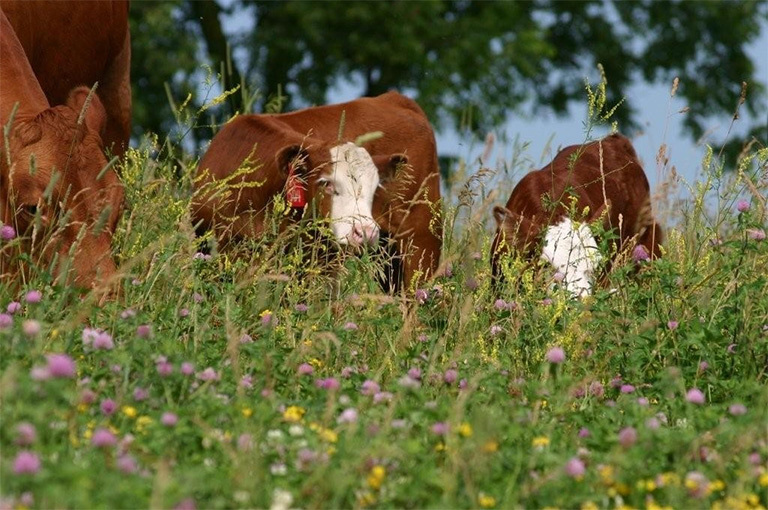Regenerative Farming and Sustainable Diets: Human, Animal and Planetary Health
How do we feed a growing population without impacting climate change? Can changing farming systems and our diets improve our own health, and that of animals? And what are some actionable solutions?

Some of the world’s finest thinkers across farming, food, business, human, animal and planetary health tackle these timely questions in this new book.
Regenerative Farming and Sustainable Diets: Human, Animal and Planetary Health is believed to be the first book of its kind to explore the power of regenerative farming, together with sustainable diets, to transform the global food system.
It features chapters from a wide range of internationally respected experts, including farmers, academics, food business directors, UN leaders, as well as our own thought leaders, including CEO Philip Lymbery. With notable contributors also including Vandana Shiva, Olivier de Schutter, Henry Dimbleby and Shireen Kassam, the book is a practical, evidence-based, and enlightening call to action.
Co-edited by our Ambassador Emeritus Joyce D’Silva and Special Advisor Carol McKenna, it dives deeper into issues explored at our groundbreaking Extinction or Regeneration conference held last May.
Read more about Regenerative Farming and Sustainable Diets and download the book
Cultivated Meat to Secure Our Future: Hope for Animals, Food Security, and the Environment

Can cultivated meat – from stem-cells grown in a bioreactor – help us win the battle against climate change, extinction, and ill-health? Will it provide real meat but without the slaughter? Can it help create a healthier, more sustainable food system? And will it help save us from extinction?
These are just some of the pressing questions answered by the new book, Cultivated Meat to Secure Our Future: Hope for Animals, Food Security, and the Environment, co-edited by our Global CEO and award-winning author, Philip Lymbery. Amidst record-breaking temperatures, wildfires, floods, and biodiversity loss, cultivated meat emerges as a promising solution to create a healthier, more humane, and sustainable food system. This book provides a well-rounded perspective from renowned experts, contributing to the ongoing dialogue about the future of food.
“Producing meat from animals on the vast scale that is happening now is an environmental disaster and a grave public health risk. Can cultivated meat truly secure our future? Michel Vandenbosch and Philip Lymbery have brought together an impressive group of experts to answer this question.”
Peter Singer, Professor of Bioethics, Princeton University
Read more about Cultivated Meat to Secure Our Future and buy your copy of the book.
Sixty harvests left… or a future-proof planet and food system?

Our world is at a critical crossroads. And the choices are ours to make – only 60 more harvests? Or a future-proof food system and planet?
The global food system – largely based on factory farming and our insatiable demand for meat – is killing our world. But transforming this devastating system is possible. And Sixty Harvests Left: How to Reach a Nature-Friendly Future points the way.

This new book, from our Global CEO and award-winning author Philip Lymbery, is the first to reveal that factory farming is as big a threat to humanity as climate change. Using detailed research, compelling stories and insightful analysis, Philip paints a vivid picture of the climate, nature and health emergencies humankind faces. The solutions he presents have the regenerative, nature-positive farming focus on soil and the interconnectedness of all life on our planet.
Sixty Harvests Left is already being celebrated as a must-read life-changing and world-saving publication.
Powerful, purposeful and persuasive, read Philip Lymbery’s book and we know what has to be done. It’s simple really, look after the land, farm it sensitively, tread softly on this earth and all can still be well. We need to transform ourselves rapidly. This book is transformative. We must read, mark and learn, fast.
Sir Michael Morpurgo
Read more about Sixty Harvests Left and buy your copy of the book.
Dead Zones or flourishing food systems?

Most of us are aware that many animals are threatened by extinction—the plight of creatures such as polar bears, elephants and jaguars has been well publicised. While typically attributed to climate change and poaching, few people realise that there is a direct link with consumer demand for cheap meat.
Philip’s new book, Dead Zone: Where the Wild Things Were explores how declining wildlife is the ‘canary in the coalmine’. Food production occupies at least a third of the Earth’s surface, and the industry is growing by the day.
At the same time, the number of mammals, birds, reptiles, amphibians and fish have halved in the last 40 years. Agriculture and the way we farm animals are at the heart of the problem.
Dead Zone is already gaining recognition, with Compassion’s patron Joanna Lumley calling it ‘a must-read book for everyone who loves the wondrous wild creatures with whom we share our precious planet’.
Find out more about Dead Zone and buy the book.
Averting Farmageddon

In 2014, our CEO Philip Lymbery co-authored the internationally-acclaimed Farmageddon: The True Cost of Cheap Meat. Published by Bloomsbury, the book exposes the myths surrounding factory farming and warns of a new wave of intensification that could take the countryside and the health of our food to breaking point.
In an attempt to feed the world we are in danger of sleepwalking into Farmageddon. Another wave of industrialisation is looming and would bring with it a deeply diminished countryside, surging disease, unhealthy food, and growing world hunger.
Through Farmageddon, I'm exposing the true cost of cheap meat and calling for urgent action to save the countryside and ensure a future based on decent, nutritious food for all.
Philip Lymbery






